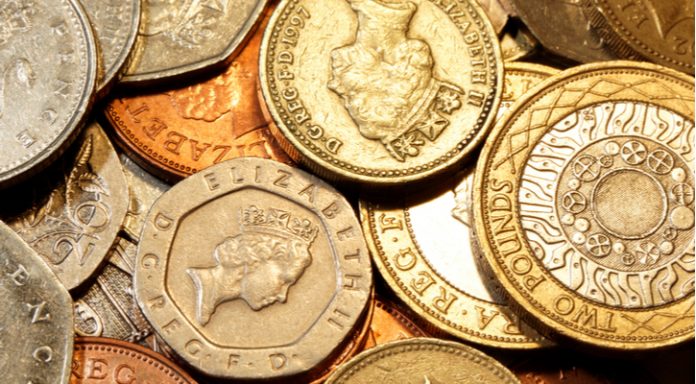- Pound (GBP) rises after retail sales rise 0.5% MoM
- Ofgem reduce household energy bill cap
- Euro (EUR) falls as German enters recession
- ECB’s Philip Lane to speak
The Pound Euro (GBP/EUR) exchange rate is rising after two days of losses. The pair fell -0.08% yesterday, settling on Thursday at €1.1490 and trading in a range between €1.1485 – €1.1542. At 09:35 UTC, GBP/EUR trades +0.14% at €1.1507.
The pound is pushing higher on Friday after UK retail sales rose by more than expected, raising optimism that the UK economy could finally be improving. UK retail 0.5% month on month in April. This was up from a downwardly revised 1.2% decline in March. However, it was also no .3% that analysts had penciled in.
Apart from a blip in March, Retail sales have been trending higher across the year, supported by a resilient UK labour market, improving consumer confidence and cooling inflation.
UK inflation cooled to 8.7% in April, still four times the Bank of England’s target level. The UK central bank is still expected to raise interest rates again in June, adding more pressure to household incomes. However, it’s also worth noting that Ofgem has lowered the energy bill camp from £2500 to £2074, which will mean that households should have more disposable income.
Looking ahead the UK economic calendar is rather quiet, which will leave sentiment as a driving force for sterling.
The euro trades under pressure the data showed that the eurozone ‘s largest economy has fallen into a recession.
German GDP was downwardly revised to -0.3% quarter on quarter in the first three months of the year, after the preliminary reading showed 0%. This comes off to the economy contracted 0.5% in in the final three months of 2022. Consecutive quarters of negative growth is a technical recession.
There is no high-impacting eurozone economic data today. Instead, investors will be watching a speech from ECB chief economist Philip Lane. Any comments regarding inflation or monetary policy could influence the euro.





